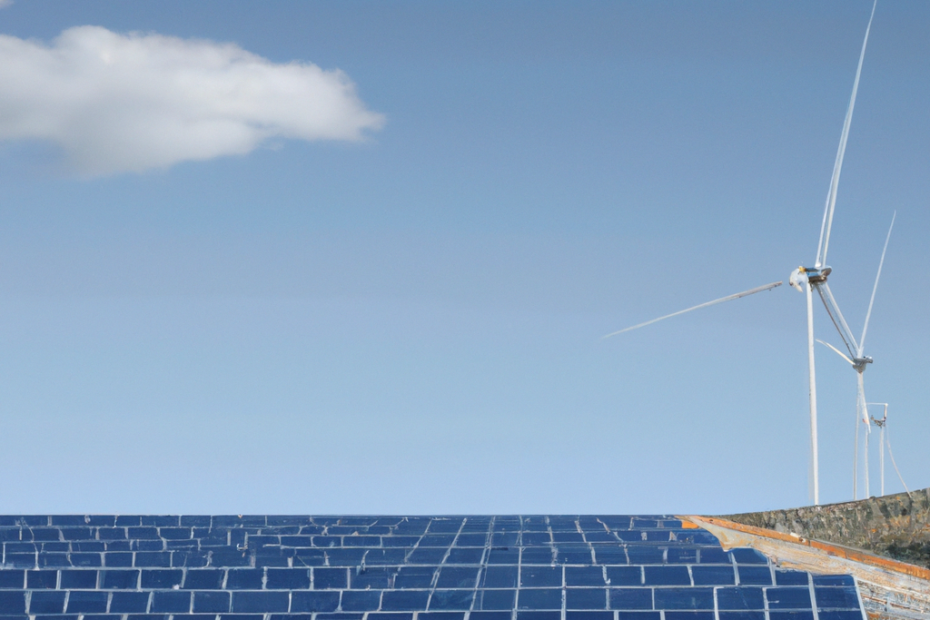Energy efficiency in industrial refrigeration refers to the ability of a refrigeration system to do its job with the lowest possible energy consumption.
This can be achieved through various techniques, such as the use of high-efficiency refrigeration equipment, regular maintenance of existing equipment, optimization of refrigeration processes, and the use of automatic control systems. In addition, the use of alternative technologies such as geothermal and absorption refrigeration systems can help reduce energy consumption.
Energy efficiency : Optimizing industrial refrigeration
Energy efficiency in industrial refrigeration is a crucial aspect to reduce energy consumption and promote a more sustainable use of resources. Industrial refrigeration is vital for many sectors, such as food, pharmaceuticals and logistics, but it also represents a high energy demand and a potential source of inefficiencies.
The main objective of energy efficiency in industrial refrigeration is to minimize energy consumption without compromising the quality and safety of refrigerated products. This is achieved through a combination of technologies and practices that optimize the performance of refrigeration systems.
Savings through advanced technologies and regular maintenance
One of the most effective ways to achieve energy efficiency in industrial refrigeration is through the use of state-of-the-art equipment and technologies. Modern refrigeration systems are designed to be highly efficient and are equipped with features such as variable speed compressors, high efficiency heat exchangers, and advanced control systems. These technological advances allow better temperature control, reduce energy losses and optimize overall system performance.
Efficient equipment and regular maintenance
In addition to having efficient equipment, regular maintenance is essential to guarantee optimal performance and minimize energy consumption in industrial refrigeration. Preventive maintenance programs are essential to identify and correct any potential problems before they become costly failures. This includes regular cleaning of components, checking for refrigerant leaks, adjustment of operating parameters, and calibration of control systems.
Energy management in industrial refrigeration: the path to savings and efficiency
Maintenance also involves continuous monitoring of equipment performance. Monitoring key variables, such as compressor efficiency, energy consumption, and temperatures, makes it possible to detect anomalies and take corrective action in a timely manner. Likewise, it is important to train the personnel in charge of industrial refrigeration in the best practices of operation and maintenance, so that they are familiar with the appropriate procedures and can identify possible improvements.
Energy efficiency in industrial refrigeration is not limited only to equipment and maintenance, but also encompasses aspects related to energy management. The implementation of energy management systems, such as ISO 50001, allows for a systematic approach to identify energy saving opportunities, set goals and objectives, and monitor energy performance over time. These management practices help promote a culture of energy efficiency throughout the organization and encourage continuous improvement.
energy saving
In addition to energy savings, efficiency in industrial refrigeration also brings economic benefits. Reducing energy consumption translates into significant savings in long-term operating costs. Likewise, regular and adequate maintenance of the equipment prolongs its useful life and avoids unnecessary expenses in repairs or premature replacements.
Energy Efficiency Checklist
-
Assess current efficiency:
Carry out an assessment of existing industrial refrigeration systems to identify potential areas for improvement in terms of energy efficiency.
-
Research and select efficient equipment:
Research and select modern and efficient industrial refrigeration equipment that is equipped with advanced features such as variable speed compressors and intelligent control systems.
-
Perform regular preventative maintenance:
Implement a preventive maintenance program to ensure that industrial refrigeration equipment is kept in optimal conditions. This includes regular cleaning of components, checking for refrigerant leaks, and adjustment of operating parameters.
-
monitor performance:
Establishes a system for continuous monitoring of refrigeration equipment performance, including compressor efficiency, energy consumption, and temperatures. This makes it possible to detect and correct any anomaly or inefficiency in a timely manner.
-
Implement an energy management system:
Consider implementing an energy management system, such as ISO 50001, to set energy efficiency goals and objectives, identify savings opportunities, and systematically monitor energy performance.
-
train staff:
Provides adequate training to the personnel in charge of industrial refrigeration, both in the best operating practices and in the maintenance of the equipment. This will allow them to perform their tasks efficiently and stay abreast of the latest technologies and methods.
-
Promote a culture of energy efficiency:
Fosters a culture of energy efficiency throughout the organization, highlighting the importance of reducing energy consumption and the associated economic benefits. Motivates employees to actively contribute to the search for solutions and improvements.
-
Carry out monitoring and continuous improvement:
Regularly monitor the results of the implemented actions and make adjustments as necessary. Evaluate the impact of the measures taken in terms of energy savings and operating costs, and look for additional opportunities to improve energy efficiency in industrial refrigeration.
Remember that these steps are general and may require adaptation according to the specific needs and characteristics of each company and its industrial refrigeration system.
Conclusion
In short, energy efficiency in industrial refrigeration is achieved through the use of modern equipment and technologies, combined with regular and proper maintenance. These practices make it possible to minimize energy consumption and maximize the performance of refrigeration systems, without compromising the quality of refrigerated products. In addition, preventive maintenance and performance monitoring are essential to identify and correct possible problems, avoiding costly breakdowns and optimizing the operation of the equipment.
In addition, energy management plays an important role in the efficiency of industrial refrigeration. The implementation of energy management systems makes it possible to establish goals and objectives, identify savings opportunities and monitor energy performance in a systematic way. This fosters a culture of energy efficiency in the organization and generates long-term economic benefits.
In conclusion, energy efficiency in industrial refrigeration is achieved through the use of efficient equipment and technologies, combined with regular maintenance and an energy management approach. These practices promote energy savings, reduce operating costs and contribute to a more sustainable use of resources in the refrigeration industry.
